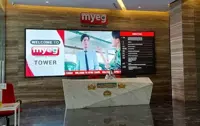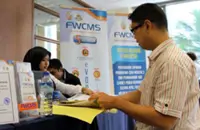PUTRAJAYA: A Bangladeshi national, who raked in RM50,000 from selling fake temporary e-work permits (e-PLKS) for foreign workers, has been detained.
The 30-year-old suspect had been operating for the past six months from a carpet shop in Jalan Tun Tan Siew Sin, Kuala Lumpur.
Follow us on our official WhatsApp channel for breaking news alerts and key updates!
Thank you for your report!





